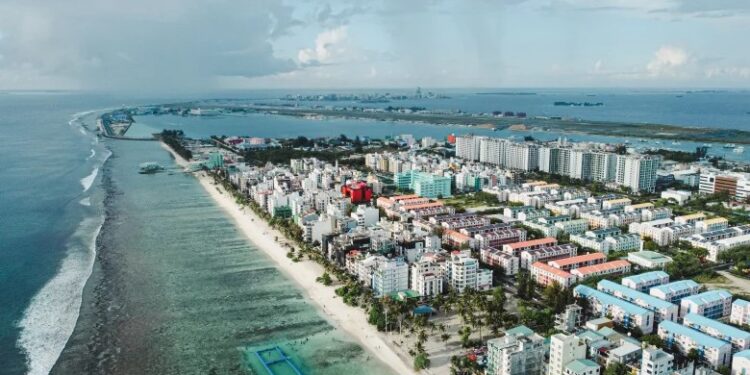The Republic of Maldives, a breathtaking archipelago situated in the Indian Ocean, is renowned for its turquoise waters, pristine beaches, and luxurious resorts. Comprising over 1,000 coral islands grouped into 26 atolls, this tropical paradise has long been a popular destination for travelers seeking a slice of heaven. However, beyond its idyllic appearance lies a nation facing several unique challenges.
Geographically, the Maldives is the lowest-lying country on Earth, with an average elevation of just 1.5 meters above sea level. As a result, the nation is highly vulnerable to the impacts of climate change, particularly rising sea levels and extreme weather events. This poses a significant threat to its existence, as there is a real risk of submergence in the not-too-distant future. The Maldivian government has been at the forefront of international climate advocacy, urging developed nations to take decisive action to combat global warming and its consequences.
Economically, the Maldives heavily relies on tourism, which accounts for a significant portion of its GDP. The nation’s natural beauty and its reputation as a luxury travel destination attract visitors from around the world. However, this reliance on tourism also exposes the country to economic vulnerability, as seen during global crises, such as the COVID-19 pandemic, which severely impacted the industry. To diversify their economy, the government has been working to promote sustainable fishing practices and exploring renewable energy sources to reduce dependency on fossil fuels.
Politically, the Maldives has experienced a turbulent history. After gaining independence from British rule in 1965, the nation has faced periods of political instability, authoritarian rule, and democratic setbacks. However, in recent years, there have been efforts towards strengthening democratic institutions and promoting human rights. Despite these improvements, challenges persist, including issues of corruption and governance.
Culturally, the Maldives boasts a rich heritage influenced by South Asian, Arab, and African traditions. The Maldivian culture is deeply rooted in Islam, which is the state religion. Consequently, religious customs and traditions play a vital role in shaping societal norms and practices. The people of the Maldives are known for their warm hospitality and unique craftsmanship, particularly in boat-building and intricate woodcarvings.
While the Maldives may be a small nation in terms of land area and population, its influence on global discussions surrounding climate change and environmental protection is substantial. As an active member of international organizations, the Maldives continues to advocate for climate action, conservation of marine ecosystems, and sustainable development practices.
In conclusion, the Republic of Maldives remains an enchanting tropical paradise facing distinctive challenges. Its vulnerability to climate change, heavy reliance on tourism, political history, and rich cultural heritage all contribute to the complex identity of this island nation. As the world grapples with global issues, the Maldives stands as a reminder of the delicate balance between preserving natural beauty and overcoming the hurdles of the 21st century.




Recent Comments